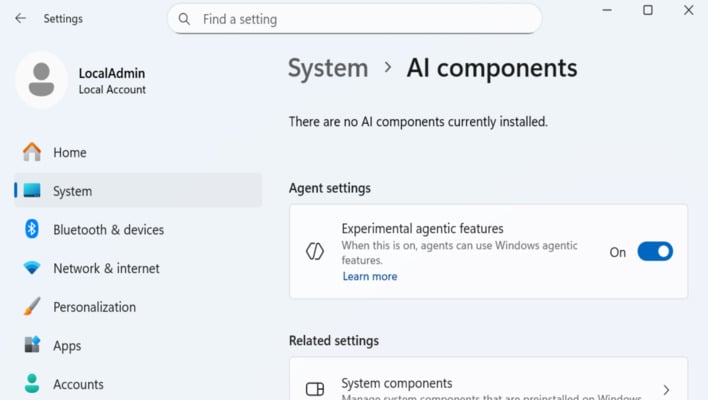Microsoft Responds To Security Concerns Over Windows 11's Agentic AI Shift
There are four principles that will be the core of what’s supposed to make this all work. One is that these agents will have their own accounts that are separate from a user’s account, so it has its own policies and permissions. Another is that agents will have limited privileges to minimize access to resources. Additionally, agents must be signed by trusted sources, and these signatures can be revoked or blocked. Lastly, this is all anchored by a privacy-preserving design that only collects and processes necessary data.

To adhere to these tenets, Microsoft is implementing agent workspaces, which will compete tasks it has been assigned by a user in the background. These workspaces are separate from that of the user so that all its actions can be reviewed to ensure it’s working as expected. Although it can use the same software as a human does, it will be limited to a set of local folders such as Documents, Downloads, Desktop and Pictures.
Those who participate in the Windows Insider Program can access these new agentic features to get a glimpse of the vision Microsoft has for its OS. These can be enabled by going to “Settings,” clicking on “System,” then clicking on “AI Components,” and toggling on “Experimental agentic features.”
While Microsoft is taking precautions seriously, users will still be granting these AI agents significant access to data and need to keep in mind that the AI is far from perfect. A vigorous backup strategy is recommended before enabling the agents.

